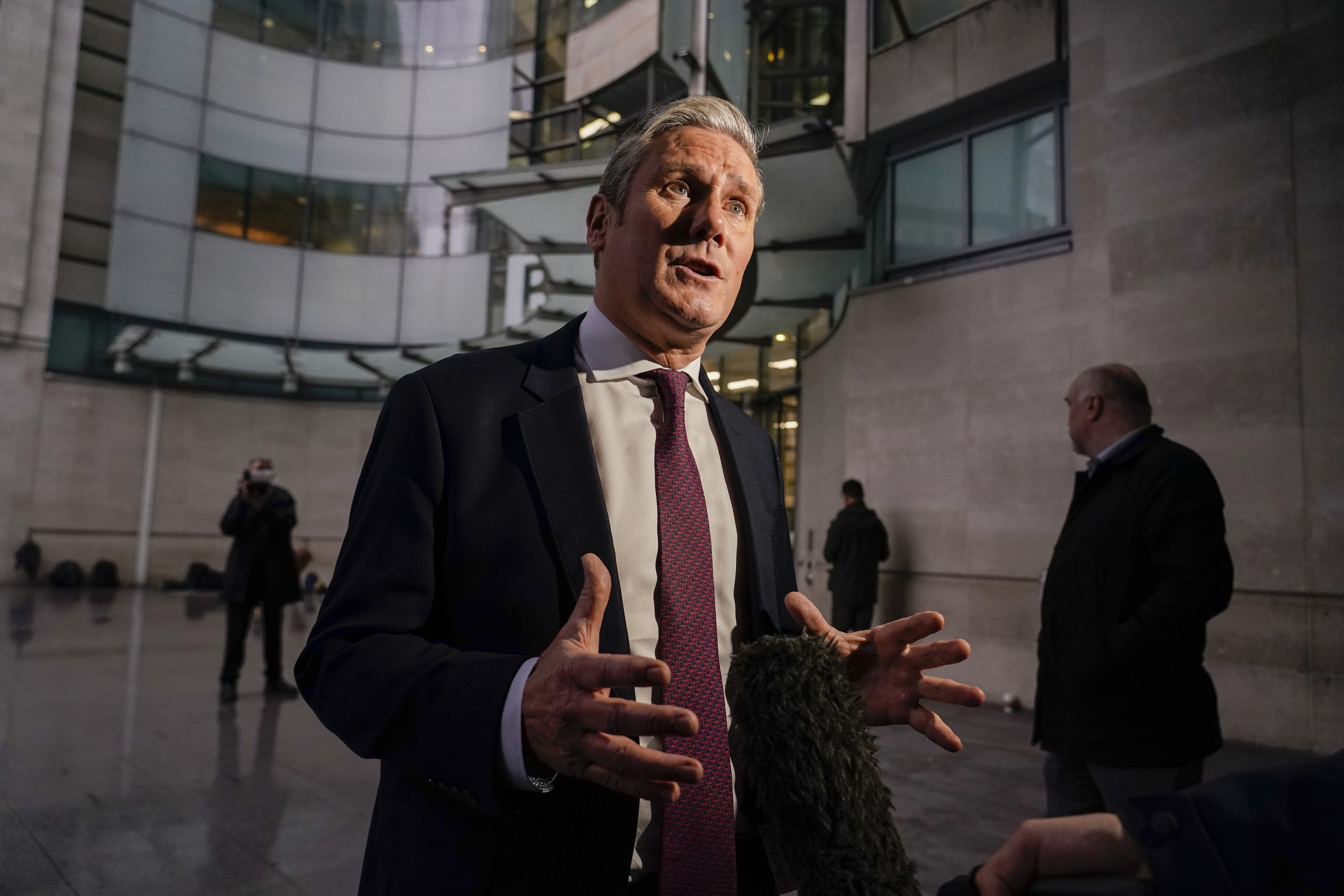However, many electors remain undecided, and Starmer sought to address a perception that the left-of-center Labour Party is weaker on defense and security than the center-right Conservatives.
"The very foundation of any good government is economic security, border security, national security," Starmer said during a speech in the seaside town of Lancing on England's south coast. "This is the foundation, the bedrock that our manifesto and our first steps, will be built upon."
Starmer accused the Conservatives of presiding over "desperate chaos." Britain's first election since 2019 follows several turbulent years that saw a global pandemic and a cost-of-living crisis triggered by Russia's invasion of Ukraine.
Those international crises were exacerbated by problems of the Conservatives' own making: a slew of ethics scandals that topped Prime Minister Boris Johnson in 2022, and the disastrous economic policies of his successor Liz Truss, who lasted only 49 days in office.
Sunak had until December to call an election and took most people - including those in his own party — by surprise when he announced last week that the vote would be held on July 4. Voters will elect lawmakers to fill all 650 seats in the House of Commons. The leader of the party that can command a Commons majority — either alone or in coalition — will become prime minister.
The Conservatives, who have been in office for 14 years, are trying to overcome a widespread sense that voters want change, and Sunak's campaign got off to a faltering start. His announcement outside 10 Downing Street saw him drenched with rain and drowned out by protesters blasting a Labour campaign song.
Sunak grabbed weekend headlines with an announcement that all 18-year-olds in Britain will have to perform a year of mandatory military or civilian national service if the Conservatives are reelected. The prime minister said the program would help "create a shared sense of purpose among our young people and a renewed sense of pride in our country."
The party faced questions about how the program would work and whether it could be made compulsory.
Starmer said the announcement reflected the Conservatives' "desperation" to shore up its vote.
Labour has lost four consecutive elections, in 2010, 2015, 2017 and 2019, and party leaders are wary of taking their poll lead for granted.
Starmer, a lawyer and former chief prosecutor for England and Wales, remains an unknown quantity to many voters. In his speech he stressed his working-class roots as the son of a toolmaker and a nurse who was the first in his family to go to university.
He said he had transformed Labour, moving it to the center ground after taking over as leader in 2020 from staunch socialist Jeremy Corbyn.
"Whatever the polls say, I know there are countless people who haven't decided how they'll vote in this election," Starmer said. "They're fed up with the failure, chaos and division of the Tories, but they still have questions about us: has Labour changed enough? Do I trust them with my money, our borders, our security?
"My answer is yes you can, because I have changed this party, permanently," he added. "This is my vision: a Britain once more in the service of working people. Country first, party second."
